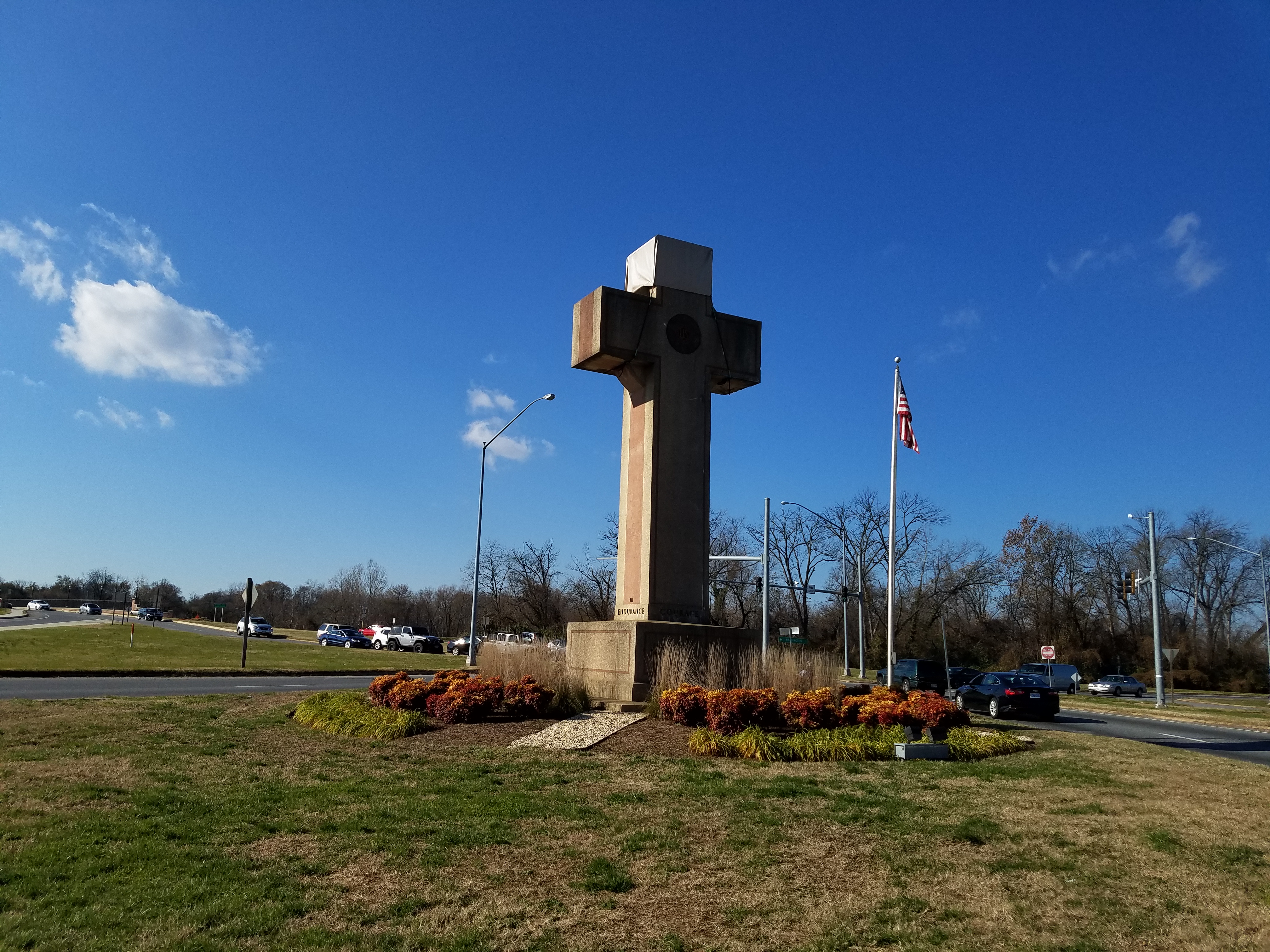The U.S. Supreme Court on Feb. 27 heard oral arguments in a case challenging government ownership and display of a large cross in Bladensburg, Md.
The case, American Legion v. American Humanist Association, concerns a 40-foot-high cross originally erected in 1925 to honor Maryland residents who died during World War I. In 1985, the cross was rededicated to memorialize the veterans of all wars. Today it is jointly owned and maintained by two counties north of Washington, D.C. – Prince George’s and Montgomery — and sits on a traffic island near the intersection of several highways. The American Humanist Association (AHA), a group for non-believers headquartered in Washington, D.C., is sponsoring the lawsuit against its display.

(PHOTO: The Bladensburg Cross.)
Although the cross is recognized as the preeminent symbol of the Christian faith, during oral arguments, cross defenders asserted that the Bladensburg structure can have a secular meaning. Neal K. Katyal, one of three attorneys who argued in favor of the cross, began by asserting that the Bladensburg Cross has no real religious content because plaques on it merely list names alongside words like “Valor” and “Honor.”
Under questioning from Justice Elena Kagan, Katyal asserted that communities should be free to erect crosses as memorials today, as long as a secular purpose can be demonstrated. He continued to insist that a cross can have a secular meaning, a claim that drew skepticism from Justice Ruth Bader Ginsburg.
The two other attorneys who argued on behalf of the cross, Michael A. Carvin and Jeffrey B. Wall, acting solicitor general, echoed Katyal’s argument. When Kagan asserted that the cross is “the foremost symbol of the Christian faith,” Wall conceded that it is but quickly added, “It has also taken on a secular meaning.”
Monica Miller, the attorney arguing the case for the AHA, disputed those claims. It would be highly insensitive, she argued, to put crosses on every grave marker at Arlington National Cemetery, and it’s equally wrong to use a giant cross to memorialize all veterans. Crosses, Miller pointed out, represent only Christians.
Miller encountered aggressive questioning from the court’s conservative wing, with Justice Samuel Alito leading the charge. Alito asserted that if the AHA prevails in this case, dozens of other crosses will have to come down.
But Miller challenged Alito’s claim, saying that the number of crosses that would be affected by this case is subject to debate and may be substantially smaller than what Alito suggested. Miller said that the crosses could be moved to private property or sold to private entities.
Other justices seemed to be interested in finding a middle-ground solution. Kagan promoted the idea that this particular cross could be permitted due to the unique, World-War-I-era practices that led to its display, and Justice Stephen Breyer suggested a standard that would grandfather in the Bladensburg Cross but would not permit a community today to erect such a blatantly sectarian symbol as a war memorial.
Justice Neil Gorsuch went in the other direction and suggested using the case to redraw church-state law by jettisoning a test the high court has used to determine church-state violations since 1971. Were the court to follow through with Gorsuch’s suggestion, numerous church-state issues would have to be re-litigated.
Americans United Legal Director Richard B. Katskee observed the argument, along with Associate Legal Director Alex J. Luchenitser and Senior Litigation Counsel Ken Upton. In addition, AU President and CEO Rachel Laser spoke at an “Honor Them All” rally outside the court sponsored by the AHA, and Laser and Katskee recorded a Facebook Live video (see below) from the steps of the building.
The Supreme Court is expected to issue a ruling in the case by the end of June.


